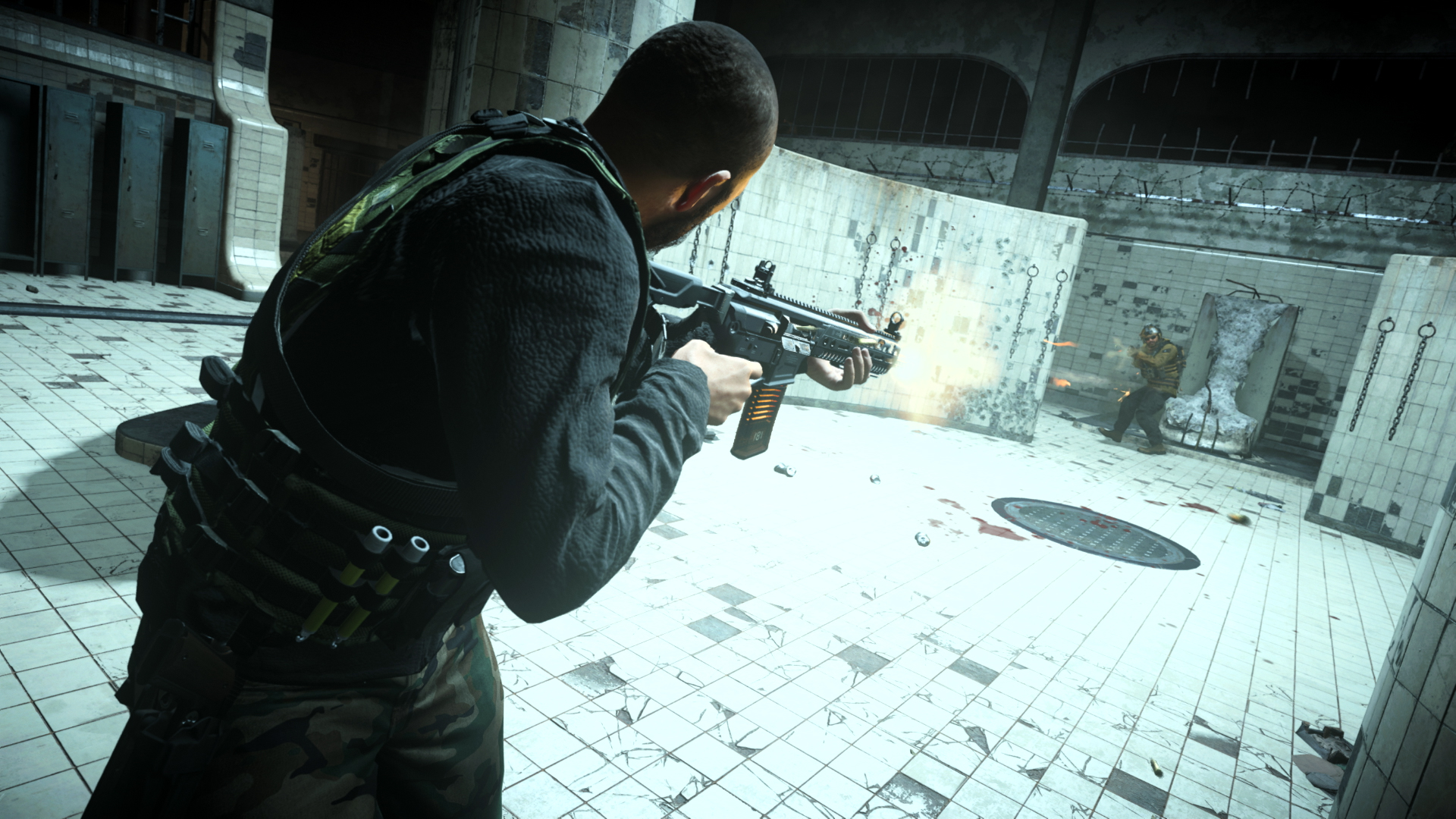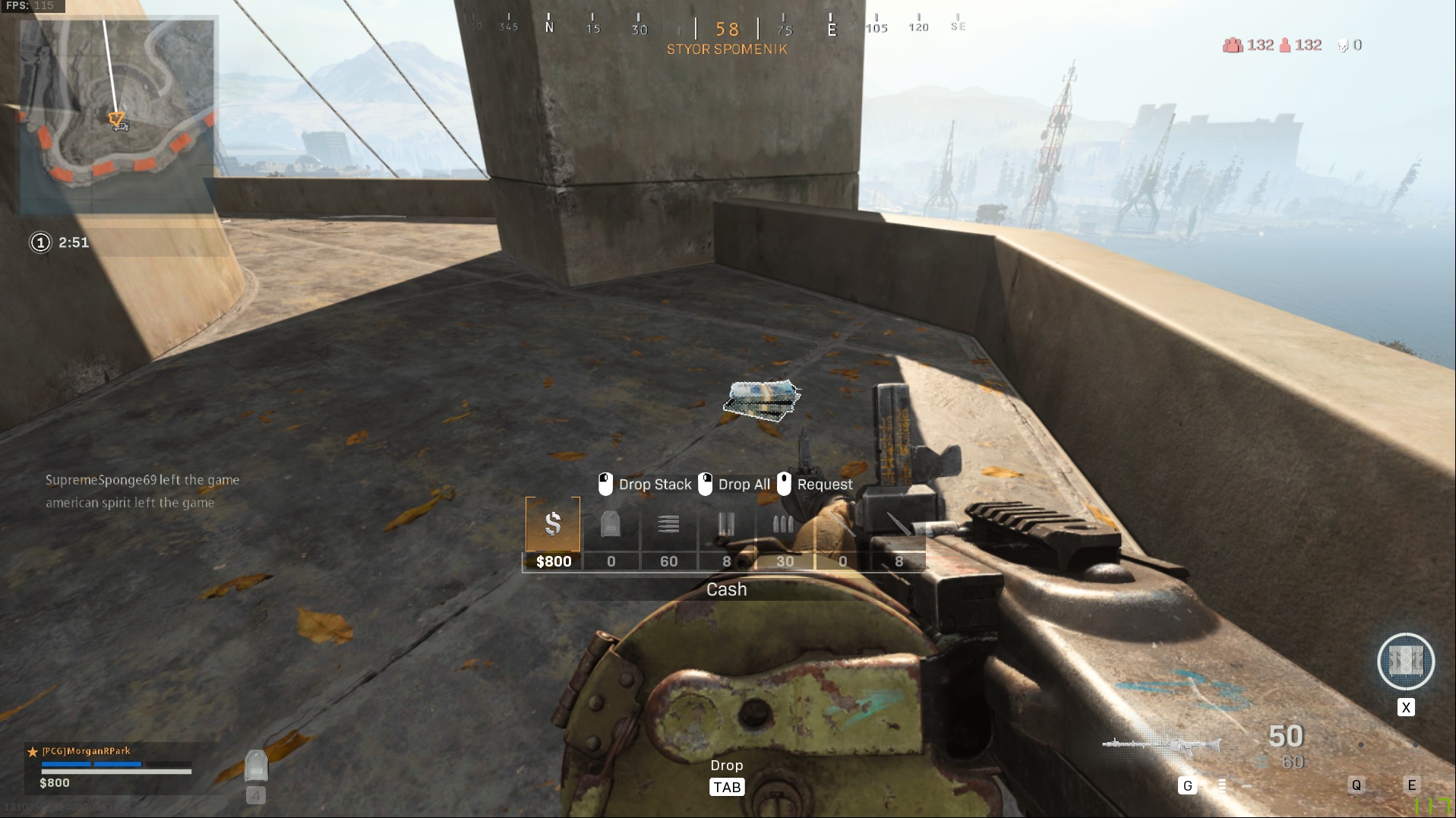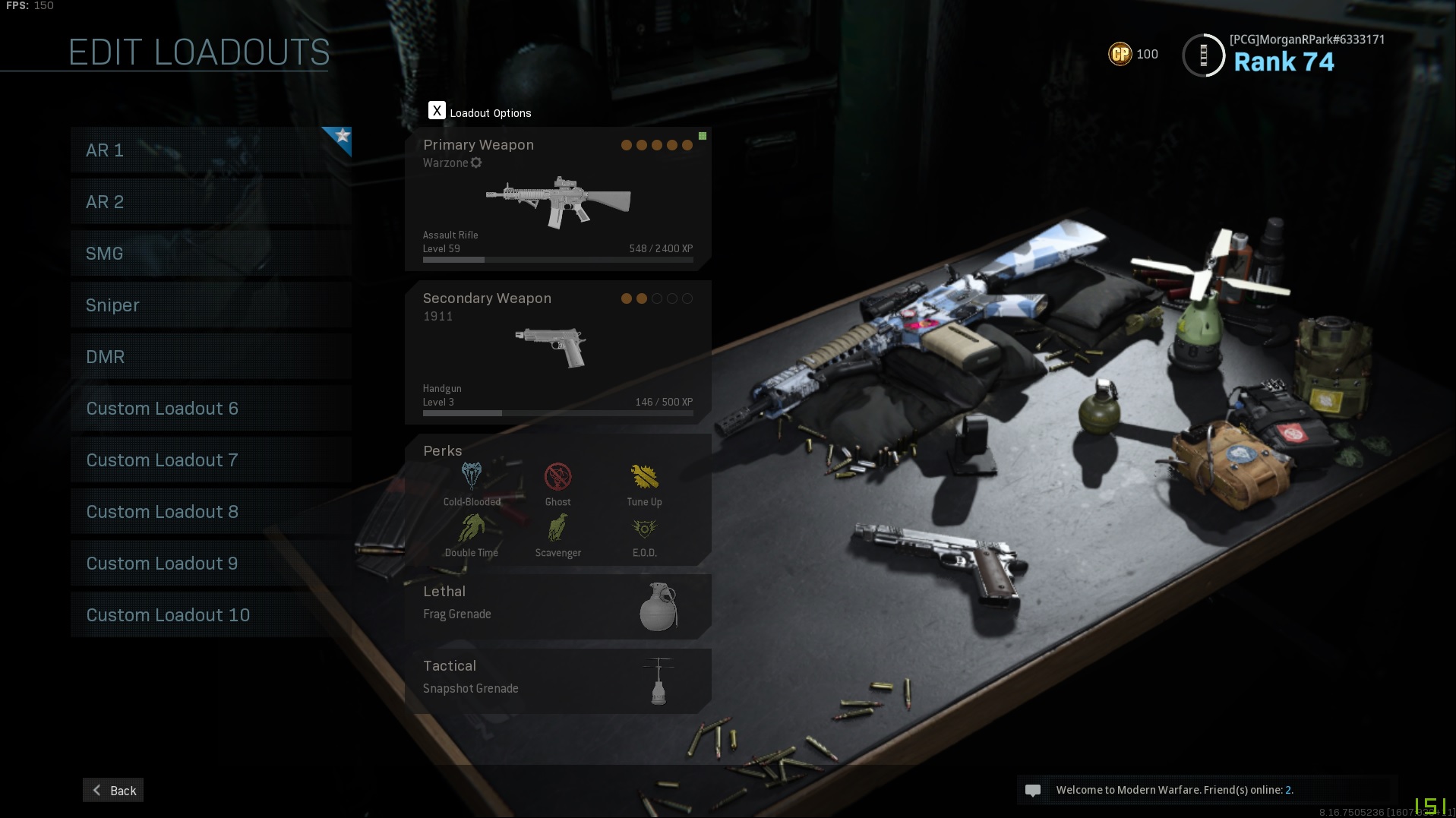Call of Duty: Warzone’s streamlined loot is so much better than fiddling with backpacks
By playing more like Call of Duty, Warzone finds the right balance between skill and randomness.

My first week with Call of Duty: Warzone has been filled with genuine surprise at how well a twitchy shooter translates to a grand battle royale. It’s not a half-assed limited-time mode: It’s a fully-realized game with ideas that move battle royale forward. The feature getting the most attention is Warzone's 1v1 Gulag fight club, but its best idea is far less flashy. Going against all battle royale traditions, Warzone throws backpacks completely out the window.
I say tradition, but the battle royale genre only started in earnest back in 2017. That’s when PUBG blew up on Steam and became the most-played game for what felt like an eternity. Following PUBG's success, every new battle royale had its own collapsing circle, randomly scattered loot, and deep backpacks to store it all.
Maybe not all of those ideas were worth borrowing. PUBG’s finicky inventory is a direct carryover from its roots as an ARMA 3 mod. In a game about surviving the steep odds of 99 enemies, I don’t want to spend most of a match staring at a grid of items, juggling a smorgasbord of weapon sights, ammo boxes, and medkits. Warzone quiets all of that noise into a simple system that avoids backpack clutter. Every type of item has its own slot, like a normal Call of Duty loadout—primary and secondary weapons, lethal and tactical grenades, field upgrades, and armor plates. You can only carry as many items as you have buttons to conveniently match to each one, meaning you never have to stop and call up an inventory screen to switch weapons or grenade types.

The closest thing to an inventory in Warzone is a small menu used to drop money, ammo, or armor plates for teammates. It’s fast and doesn’t obstruct your view, which is vital for Call of Duty’s frantic combat. As for attachments, Warzone gets around this by locking weapons into whatever attachments they already have on them. Weapons can still be customized, but only outside the game in Create a Class. Once you build up enough cash mid-match, you can call in whichever custom loadout you wish.
Less loot means far less randomness in who ends up well-equipped for firefights
This is also a built-in progression system for Warzone, as you unlock new attachments and weapon perks the more you use a gun. I like having a clear path to the exact loadout I want instead of hoping to find an abandoned angled grip in a shack.
Warzone streamlines health recovery, too. On top of Call of Duty’s signature replenishing health, players slot in a single type of armor plate with its own dedicated button. That’s a lot less management than in PUBG and Apex Legends, where healing items take up the same limited space as other loot. Even Apex Legends’ intuitive radial menu for swapping between bandages and shield batteries is more fidgeting than I want to do in the heat of a fight. It may take skill to know when to heal safely in a battle royale, but by eliminating those pauses Warzone keeps the action constantly moving. When I need to re-up armor in Warzone, I just press 4.
Warzone goes the furthest of major battle royales in streamlining looting and inventory, but the genre has been trending toward this kind of simplicity for years. Apex Legends mostly follows PUBG’s template, but Respawn makes weapon customizing a breeze by automatically equipping optimal attachments when you pick them up. Fortnite has a health and shield meter replenished by items, but you don’t have to equip armor or helmets.
The biggest gaming news, reviews and hardware deals
Keep up to date with the most important stories and the best deals, as picked by the PC Gamer team.

I’m not saying that every battle royale has to ditch copious loot and backpacks, but it’s worth celebrating how Warzone’s simplifications improve the genre’s typically wonky balance. Less loot means far less randomness in who ends up well-equipped for firefights. In Apex Legends or PUBG, grabbing level three armor early on can make fights feel one-sided. Armor plates are the only health currency in Warzone, and they’re common enough that you can always have a few on hand. And Warzone's weapon customization is more about preference than augmenting damage. It’s nice to play a battle royale that favors gun skill and smart positioning over how good your loot is.
Warzone is a shooter first, and royale second. It directly challenges the battle royale rules set in 2017 and made me realize they really didn't need to be the de facto rules for every battle royale. PUBG’s setup works for that game, but there’s no law that says a 100+ player deathmatch has to have backpacks and armor. Heck, they don’t need a shrinking circle of death. I'm allergic to inventory screens and prefer more lethal combat, so Warzone is perfect for me.
I hope more battle royale games follow Call of Duty's lead—not by doing the exact same thing, but by tossing out the rules that don't work for them and coming up with something new.

Morgan has been writing for PC Gamer since 2018, first as a freelancer and currently as a staff writer. He has also appeared on Polygon, Kotaku, Fanbyte, and PCGamesN. Before freelancing, he spent most of high school and all of college writing at small gaming sites that didn't pay him. He's very happy to have a real job now. Morgan is a beat writer following the latest and greatest shooters and the communities that play them. He also writes general news, reviews, features, the occasional guide, and bad jokes in Slack. Twist his arm, and he'll even write about a boring strategy game. Please don't, though.

